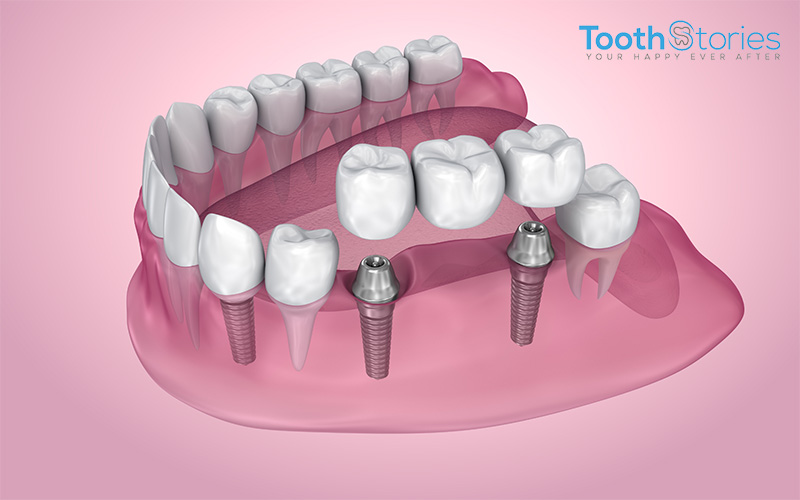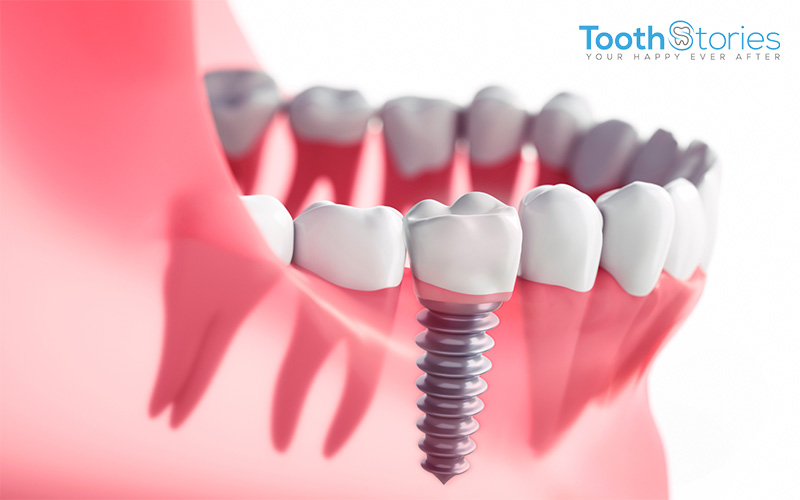
Implant Supported Dentures: How They Differ from Traditional Dentures
A full set of healthy teeth is a priceless asset that gives you more than just a beautiful smile. From eating and speaking to facial structure and support, having all your teeth is crucial for many functions.
Learn More: Why is Oral Health So Important?
However, even as you try to maintain oral hygiene and retain healthy teeth, issues such as tooth decay, gum disease, or trauma and injury can cause you to lose one or more teeth.
Fortunately, when this happens, you’ll have the option of replacing missing teeth and restoring oral function with modern dentistry solutions. One such remedy is implant-supported dentures. Read on to learn more about this dental restoration method and how it differs from traditional dentures here.
What are Implant-Supported Dentures?

Implant-supported dentures are a type of dental prosthetic designed to replace missing teeth by combining dental implants and dentures. This innovative solution allows patients to enjoy both the benefits of an implant and the convenience of dentures.
Here’s a look at the process of getting them to help you understand better:
• The process begins with an initial consultation with a dental surgeon. They will assess your oral health to determine your suitability for this dental restoration method. You’ll need to have a healthy amount of jawbone to be eligible.
• If you’re a suitable candidate, your dental surgeon will develop a treatment plan for you, detailing how many implants you’ll need, where they’ll be placed, and the type of denture that will be used.
• During treatment, the dental implants will be surgically placed into your jawbone. This will be performed under local anaesthesia. You’ll then be required to return home to rest and recover while waiting for the implants to fuse with the surrounding jawbone. This process is known as osseointegration.
• After recovery, connector pieces, or abutments, may be attached to the implants to serve as attachment points for the dentures.
• When the implants have fused with the jawbone and are ready to support the dentures, impressions will be taken to customise your dentures. Then, once the dentures are fabricated, they will be fitted onto the dental implants and adjusted to ensure a comfortable fit.
Implant-Supported Dentures vs Traditional Dentures
• Stability and Retention
Traditional dentures rely on adhesives, suction, or clasps to stay in place, which can be unstable, especially during mealtimes or when you’re trying to speak. Implant-supported dentures, however, stay rooted to your gums because they’re anchored to the jawbone. The implants act as stable supports that prevent the dentures from shifting or falling out.
• Chewing Function
Thanks to the sturdy hold provided by the dental implants, implant-supported dentures provide better chewing efficiency and allow wearers to enjoy a more varied and natural diet. This may not be possible with traditional dentures as they may be prone to shifting around during chewing, especially if you’re eating hard or sticky foods.
• Comfort
Traditional dentures can sometimes cause gum irritation and pain, particularly if they don’t fit perfectly in the mouth. The adhesives used can also cause discomfort. This isn’t the case with implant-supported ones as they do not rub against the gums or create sore spots.
• Bone Preservation

Dental implants, when inserted into the jawbone, act as a stimulant that prevents bone resorption. It’s also one of the only ways to strengthen and regenerate jaw tissues. This means that with dentures supported by implants, you’re less likely to experience bone loss. Regular dentures are unable to function the same way because they sit on the gum and have no contact with your jawbone.
• Removability and Maintenance
Implant-supported dentures are easily removable and their maintenance is similar to a traditional denture. The only difference you’ll get is its stability when eating and speaking, and that you will not need any adhesive to hold them in place.
• Cost
Implant-supported dentures cost just slightly more than traditional dentures, but the benefits of stability while eating and speaking, and the option to chew harder foods far outweigh the additional cost you have to fork out.
Ultimately, the decision between implant-supported dentures and traditional dentures lies on your preference, oral health condition, and budget. Do speak with a dentist to find out which solution suits your needs best.
Tooth Stories is a dental clinic in Singapore that specialises in addressing various oral health concerns. Schedule your dental appointment with us here.
